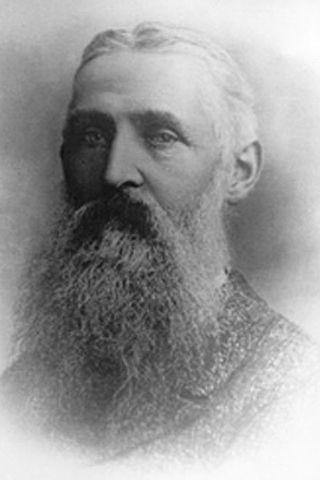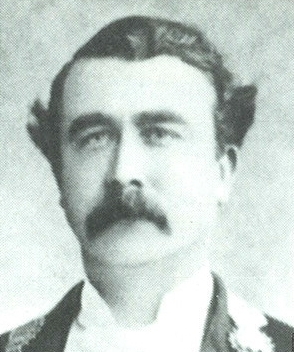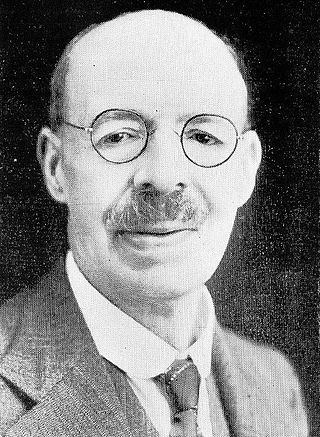| ||||||||||||||||
| Turnout | 1,244 | |||||||||||||||
|---|---|---|---|---|---|---|---|---|---|---|---|---|---|---|---|---|
| ||||||||||||||||
| ||||||||||||||||
The 1875 Wellington City mayoral election was the second election for the Mayor of Wellington held by public vote. The election was won by William Hutchison, who beat William Gisborne.
| ||||||||||||||||
| Turnout | 1,244 | |||||||||||||||
|---|---|---|---|---|---|---|---|---|---|---|---|---|---|---|---|---|
| ||||||||||||||||
| ||||||||||||||||
The 1875 Wellington City mayoral election was the second election for the Mayor of Wellington held by public vote. The election was won by William Hutchison, who beat William Gisborne.
Initially, councillors elected one of their own as mayor towards the end of the year, and the role was usually awarded to the most senior councillor. The system changed with the introduction of The Municipal Corporations Acts Amendment Act, 1875, as that legislation stipulated that mayors had to be elected at large (i.e. by eligible voters). [1]
The incumbent mayor, William Sefton Moorhouse, did not stand again, and a farewell dinner was given for him on 1 December. [2] William Gisborne was a strong candidate for the role, but he fell out with the public over him favouring denominational education. In addition, he then announced himself as a candidate for the 1875 general election in the City of Wellington electorate, and that triggered a concerted effort to find a suitable opponent. A 'less than optimal' candidate was eventually secured in William Hutchison, who had been in Wellington for less than two years, and whose newspaper, the Tribune, had failed during that time. [3] One of the local newspapers, The Evening Post , was a very strong supporter of Gisborne, and lost no opportunity to outline the failings of Hutchison to the public. [4]
The following table gives the election results:
| Party | Candidate | Votes | % | ±% | |
|---|---|---|---|---|---|
| Independent | William Hutchison | 658 | 52.89 | ||
| Independent | William Gisborne | 586 | 47.11 | ||
| Majority | 72 | 5.79 | |||
| Turnout | 1,244 | ||||
The election was held on 15 December. [6] Hutchison beat Gisborne, and The Evening Post commented that this came as no surprise as Gisborne's stance on education had been misrepresented and twisted without scruple. [7] The defeat caused Gisborne to withdraw from the general election. [3] In December 1876, Hutchison was re-elected unopposed for a second term as mayor. [8]

The Mayor of Wellington is the head of the municipal government of the City of Wellington. The mayor presides over the Wellington City Council. The mayor is directly elected using the Single Transferable Vote method of proportional representation. The current mayor is Tory Whanau, elected in October 2022 for a three-year-term.

The Mayor of Christchurch is the head of the municipal government of Christchurch, New Zealand, and presides over the Christchurch City Council. The mayor is directly elected using a First Past the Post electoral system. The current mayor, Phil Mauger, was elected in the 2022 mayoral election. The current deputy mayor is Pauline Cotter.

Sir William Jukes Steward was a New Zealand politician and the first Liberal Speaker of the New Zealand House of Representatives. He represented South Canterbury electorates in Parliament for a total of 34 years, before being appointed to the Legislative Council. He served briefly on the Otago Provincial Council and was Mayor of Oamaru for three years.

William Gisborne was the first New Zealand Cabinet Secretary from 1864 to 1869, Colonial Secretary of New Zealand from 1869 to 1872, and Minister of Public Works between 1870 and 1871. The city of Gisborne in New Zealand is named after him.

Robert McKeen was a New Zealand politician of the Labour Party. He was Speaker of the House of Representatives.

Sir William Appleton was a New Zealand local body politician, advertising agent and leading company director. He was Mayor of Wellington for two terms from 1944 to 1950 after serving as a city councillor from 1931 to 1944. He was knighted in 1950.

William Hutchison was a New Zealand politician and journalist. Hutchison and his son George were both Members of Parliament.

Charles Henry Chapman was a New Zealand unionist and politician of the Labour Party and various predecessor parties.
The mayor of Whanganui is the head of the Whanganui District Council. Since 1872, there have been 29 mayors. Andrew Tripe is the current mayor.

Robert Alexander Wright was the Mayor of Wellington from 1921 to 1925, and a New Zealand politician of the Reform Party.

Charles Partridge Hulbert was Mayor of Christchurch in from December 1883 to December 1885.

William Kelly was an Irish migrant to New Zealand, and became a businessman, soldier and politician.

The mayor of Nelson is the head of the municipal government of Nelson, New Zealand, and presides over the Nelson City Council. The mayor is directly elected using a single transferable vote electoral system. The current mayor is Nick Smith, who was elected in September 2022.

John Glover was a New Zealand politician and trade unionist. He was an organiser and candidate for the United Labour, Social Democratic Party then the Labour Party serving time in local government.
The 1921 Wellington City mayoral election was part of the New Zealand local elections held that same year. In 1921, elections were held for the Mayor of Wellington plus other local government positions including fifteen city councillors. The polling was conducted using the standard first-past-the-post electoral method.

The 1933 Wellington City mayoral election was part of the New Zealand local elections held that same year. In 1933, elections were held for the Mayor of Wellington plus other local government positions including the fifteen city councillors, also elected biannually. Thomas Hislop, the incumbent Mayor sought re-election and retained office unopposed with no other candidates emerging. The polling was conducted using the standard first-past-the-post electoral method.

The 1941 Wellington City mayoral election was part of the New Zealand local elections held that same year. In 1941, elections were held for the Mayor of Wellington and fifteen city councillors plus seats on the Wellington Hospital Board and Wellington Harbour Board. The polling was conducted using the standard first-past-the-post electoral method.

The 1944 Wellington City mayoral election was part of the New Zealand local elections held that same year. In 1944, election were held for the Mayor of Wellington plus other local government positions including fifteen city councillors. The polling was conducted using the standard first-past-the-post electoral method.

The 1876 Wellington City mayoral election was part of the New Zealand local elections held that same year. William Hutchison, the incumbent Mayor sought re-election and retained office unopposed with no other candidates emerging.

The Mayor of Lyttelton was the head of the municipal government of Lyttelton, New Zealand. The position existed from 1868, when the Borough of Lyttelton was formed.